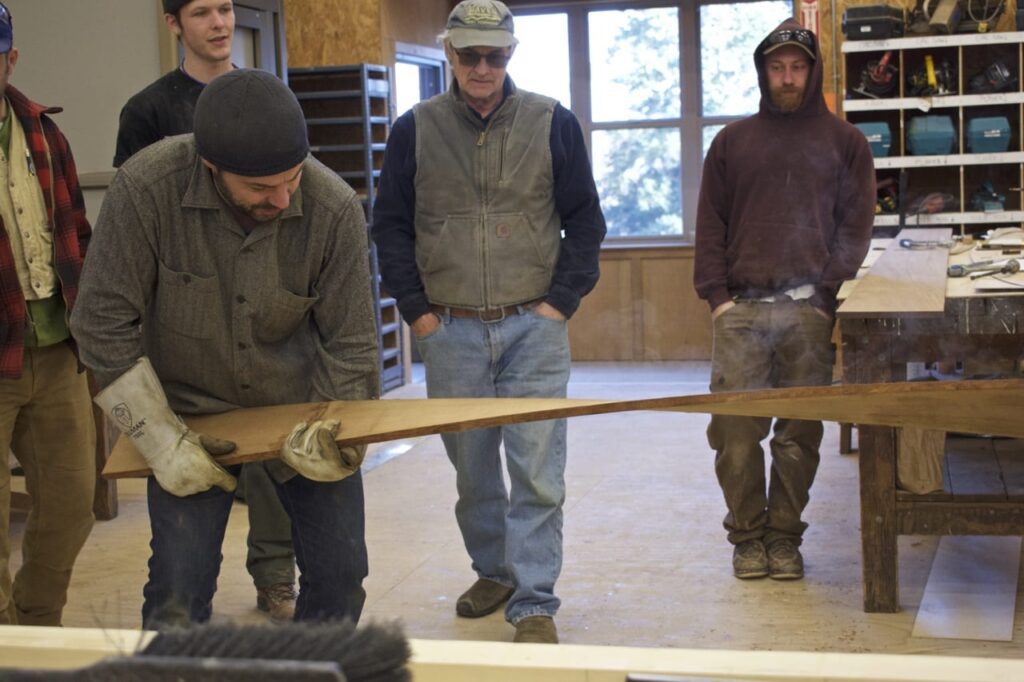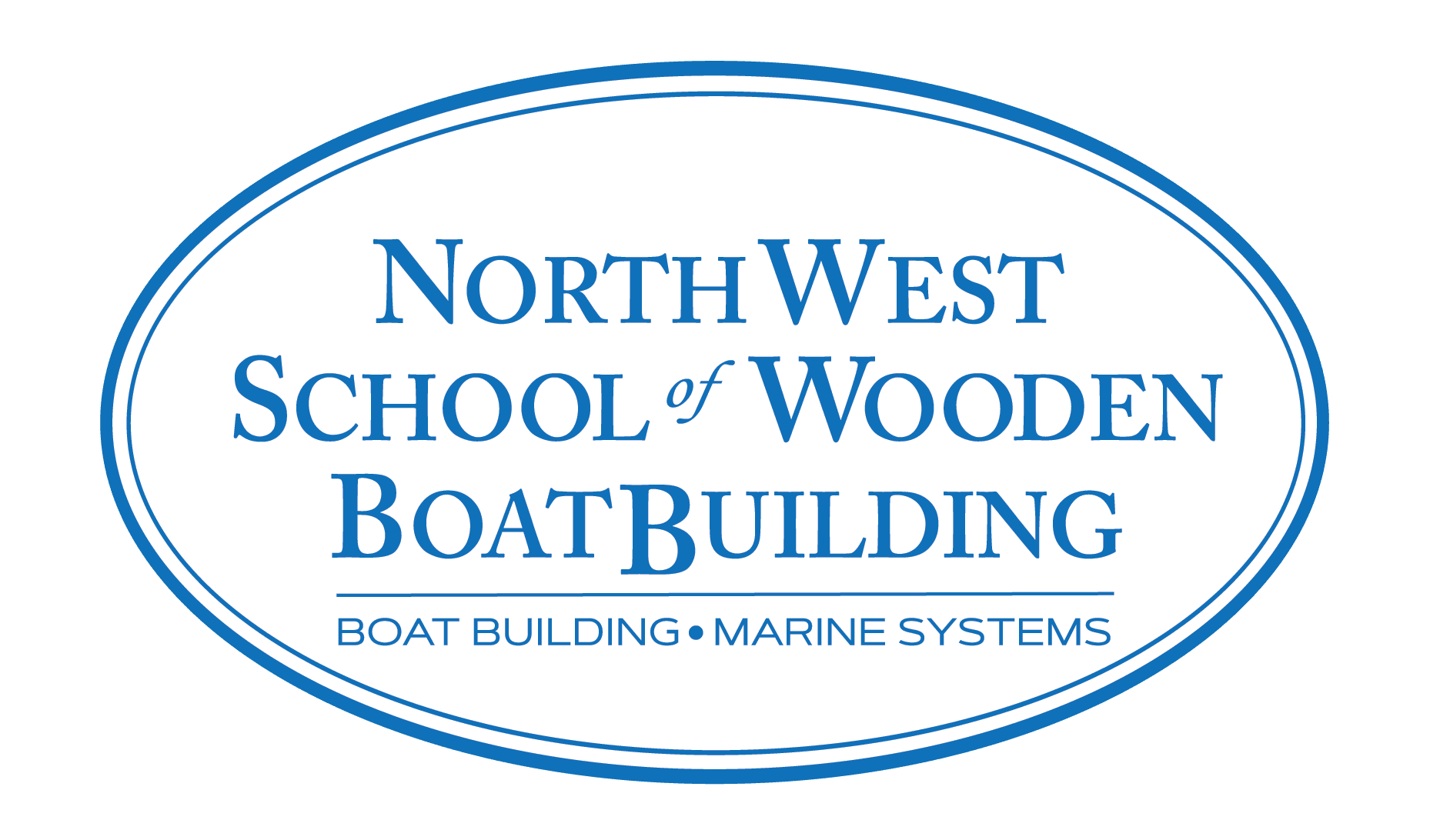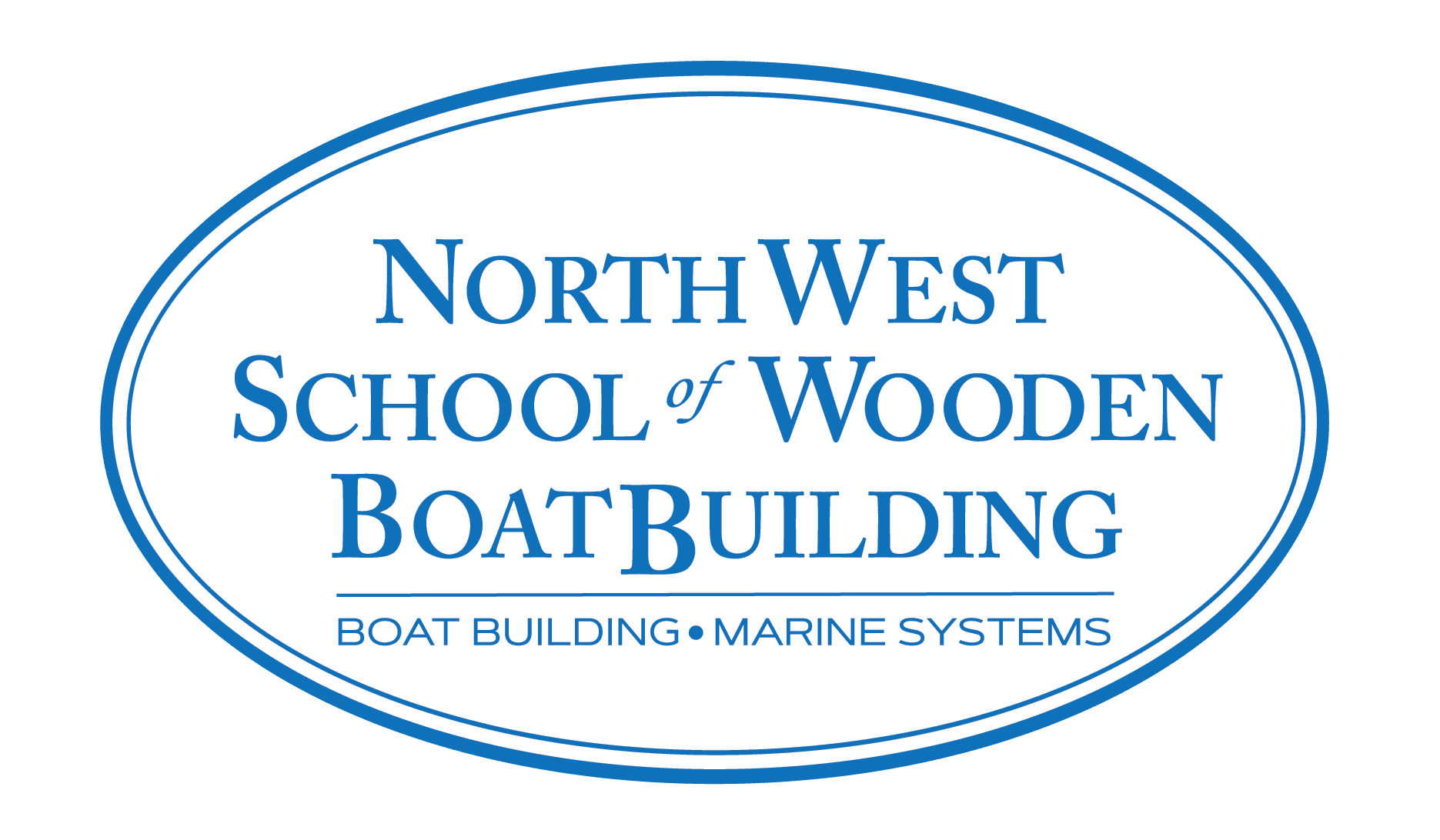
“A lot of times you might not have a particular affinity for the owner, but you always do your best for the boat,” he said during a conversation on the floor of the Hammond Shop. “That’s all you have — personal pride and the knowledge that you did your best.”
Not long after he turned 18, he began to mull over the idea of apprenticing to a boat shop, but he initially chose a more traditional path. Leland tried his hand at studying biology in college, but left that for food service. It was when he was in his 20s that he made that fateful call to the school, and clearly found a calling in his dedication to craftsmanship.
Surrounding him on the shop floor were a fantail launch, a Herreshoff Rozinante, a nearly finished Poulsbo boat and a sleek clinkere double-ender, projects that, taken together, offer a wide variety of challenges and experiences to students.
After so many years working on boats, Leland’s passion has flourished, not withered. “It’s addicting to put two pieces of wood together and have them click,” he said. “It’s glorious working with boats, especially new boats.”
He clearly enjoys the significant problem-solving element that goes with boat work. “The stuff you teach is pretty applicable to anything. Realizing you can thread something and pound on it to make a head and you have a bolt – that’s pretty much applicable to everything.”
How would he characterize the Northwest School of Wooden Boatbuilding?
“We are a trade school,” he summarized. “The maritime industry is a fairly vibrant industry. You get to live in the beautiful places of the world, and you get to earn a solid middle-class income doing something you love.
“The only way to get these skills, is that you have to do something over and over again. If you want to do anything at all, this is a great place to start.”


